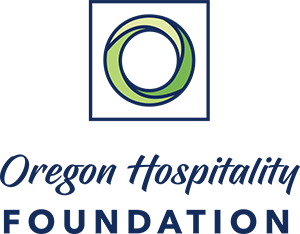Workforce Development & Partnerships
Growing Hospitality Through Workforce Partnerships
Collaboration between workforce boards and industry sector partnerships brings employers, educators, and community leaders together to address shared challenges and grow a skilled hospitality workforce. By engaging in these alliances, ORLA helps position hospitality as a priority sector—unlocking targeted training, resources, and funding that strengthen hotels, restaurants, and tourism businesses. These partnerships ensure Oregon’s hospitality industry remains competitive, resilient, and ready to meet future workforce needs.
Building Coastal Hospitality Careers Together
The Oregon Coast Hospitality Industry Sector Partnership, supported by the Oregon Hospitality Foundation, unites employers, educators, and community leaders to tackle workforce challenges like staffing, housing, and career awareness. Recent efforts include hands-on training for 430+ students and a pilot high school hospitality course. Next steps aim to strengthen industry-education connections, grow internships, and create clear career pathways for coastal hospitality jobs.
For more information, contact Rebecca Donley (she/her), Oregon Coast Workforce Strategist for the Oregon Hospitality Foundation at 714.483.6542.

Partnering with Community-Based Organizations
Community-Based Organizations (CBOs) are nonprofits and service agencies that provide education, job training, and support to help individuals succeed in the workforce. For restaurant and lodging operators, they can be key partners in recruiting talent, offering skills training, and boosting retention. The Oregon Hospitality Foundation can help connect hospitality businesses with CBOs to strengthen workforce pipelines and expand hiring options. Access the curated CBO Resource List.
Resources to Explore Careers in Hospitality
Discover a variety of tools and programs designed to explore careers and advancement opportunities in the hospitality industry—from culinary arts and restaurant management to lodging operations and leadership. These resources offer insights, training, and clear pathways to help you start or grow your career in this dynamic field.
Making Connections in Hospitality Hiring
WorkSource Oregon is a strategic partner ready to help hospitality employers elevate hiring—providing hands-on support, access to incentives, and rapid crisis response. Engaging with your local office can strengthen your team and streamline recruitment, all while advancing your workforce resilience.
Career fairs can give prospective employers a direct way to connect with motivated students and job seekers, build brand awareness, and strengthen their talent pipeline. The Oregon Hospitality Foundation is curating a growing list of these career fairs and workforce events that are especially relevant to the hospitality industry–each with opportunities for operators to engage with students and help promote careers in hospitality. Sign up here, or contact Rebecca Donley to get involved.
Donate and Help Us Build the Future of Hospitality
The Oregon Hospitality Foundation’s impact is fueled by the generosity of partners, grants, and private donations. Your support empowers us to open doors for students, provide training and certifications for workers, and create pathways to meaningful careers. By investing in people, we strengthen Oregon’s hospitality industry and ensure its vitality for generations to come. Join us in shaping the future of our workforce and our communities.

